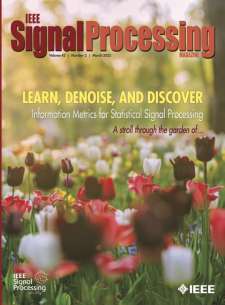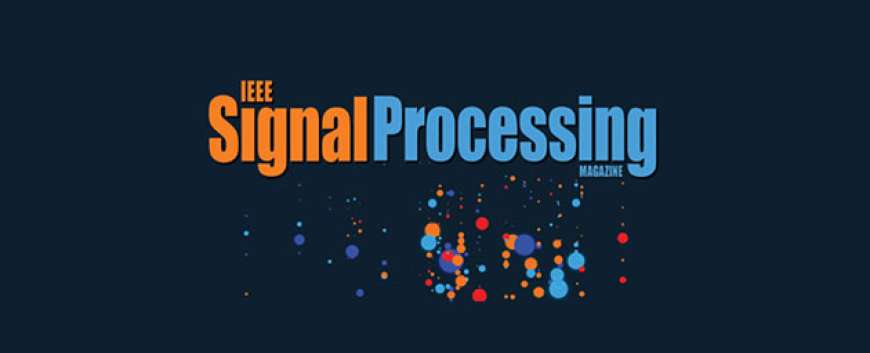IEEE SPM Special Issue on Artificial Intelligence for Education: A Signal Processing Perspective
White Paper Due: 1 November 2024
Publication: November 2025
“Something's changed, and now a few of the kids are writing these really long, detailed essays. Say what? There's an app that anyone can use that does all the thinking and writing for you? Well, this is gonna be amazing! I can use it to grade all my papers, and no one will ever know!” paraphrased from South Park, S26E04
Signal Processing (SP) is at the heart of our digital lives and has served as an enabling technology across multiple disciplines - from the acquisition of signals and images through to Artificial Intelligence (AI). With education playing a key role in the advancement of modern data-centric disciplines, it has been recognized that AI technologies - particularly the success of Generative AI - offer transformative possibilities to revolutionize SP education, making it more data-driven, relevant, and personalized. In addition, Signal Processing is uniquely positioned to contribute to the development of AI tools for education, both in SP and in a broader range data-centric disciplines, and to leverage AI tools to promote innovation, societal impact and careers in science and engineering, all subject of this Special Issue.
With initiatives for smooth and impactful integration of Artificial Intelligence into education underway world-wide, this Special Issue aims to facilitate keeping abreast with AI for Signal Processing education. This includes the convergence of educational materials and practices with other disciplines, including data science, machine learning, artificial intelligence, big data, bioengineering, statistics and others. These innovations require carefully addressing additional aspects such as fairness, ethical AI, inclusivity, student well-being and privacy, to accommodate diverse learning styles while maximizing student inspiration and engagement. This also opens opportunities to mitigate the “Digital Divide” between the developed and developing world, and between the (ageing) instructors and students. Despite challenges, we can and must exploit these opportunities in charting dynamically adjustable and practically relevant taught material, together with promoting equitable access to the education process, and student and instructor support.
This special issue revolves around four most pressing aspects of modern SP education:
- Integration of AI into Signal Processing and Science and Engineering education to facilitate curriculum development and revolutionize education delivery, including gamification and Large Language Models (LLM).
- AI-driven tutoring and assessment strategies, such as automated grading, AI-powered performance metrics, and intelligent forming of student cohorts to promote student participation, engagement, and creativity.
- Accountable AI for accessible and inclusive SP education, including diverse learning styles, ethical and security aspects, privacy, contextualized and personalized education delivery.
- Mitigation of the Digital Divide through AI-powered Signal Processing education, including equitable access for the developing world, empowering women and minorities, and delivery for students with special needs.
Topics of Interest includes but are not limited to:
- Human-in-the-loop aspects, including the use of Generative AI to do the work “with you”, and not “for you”.
- Intelligent tutoring systems, interaction with the learners and teachers through sensor technologies and wearables.
- “Learning rather than teaching” way of AI-driven education delivery and LLMs, including student progress tracking.
- AI for student feedback and assessment, including “Intellectual Contribution”, plagiarism and metrics for success.
- Human-AI co-creativity, such as virtual assistants for fostering curiosity and innovation in SP-style courses.
- “Science and Engineering are cool”, AI-based teaching to enhance the appeal of SP-style and data-centric topics.
- Bridging all aspects of the Digital Divide, and inclusive, fair and equitable education in Science and Engineering.
- AI-driven solutions for promoting diversity, inclusivity, catering for ethical aspects and students with special needs.
- Generative AI techniques, such as Retrieval-Augmentation-Generation for optimizing SP educational resources.
- Trustworthy educational AI tools, specifically tailored for data-centric disciplines such as Signal Processing.
- Curricular changes to meet both the opportunities and challenges offered by AI and demands from industry.
- Virtual reality (VR), Augmented reality (AR) and Artificial Intelligence for immersive learning experiences.
- Opportunities, including novel Signal Processing solutions specifically developed for AI for Education.
Submission Process. Original submissions will be reviewed according to the guidelines of the IEEE Signal Processing Magazine, and should be submitted at ScholarOne system. Prospective authors should initially submit short White Papers, which will be reviewed by Guest Editors. Authors of successful White Papers will be invited to submit full-length manuscripts, which will undergo the review in accordance with the schedule outlined below. The authors of accepted papers are encouraged to provide resources, demos, videos and other multimedia material.
Important Dates
- White Papers (up to 4 pages) due: 1 November 2024
- Decision on White Papers: 1 December 2024
- Full length manuscripts due: 1 February 2025
- Review results and decision: 1 April 2025
- Revised manuscripts due: 1 June 2025
- Acceptance notification: 1 August 2025
- Final manuscripts due: 1 September 2025
- Publication: 1 November 2025
Guest Editors
- Danilo Mandic, Imperial College London, UK
- Chrisina Jayne, Teesside University, UK
- Mónica Bugallo, SUNY at Stony Brook, USA
- Irwin King, The Chinese University of Hong Kong, China
Please contact Guest Editors for any initial questions concerning this Special Issue.













